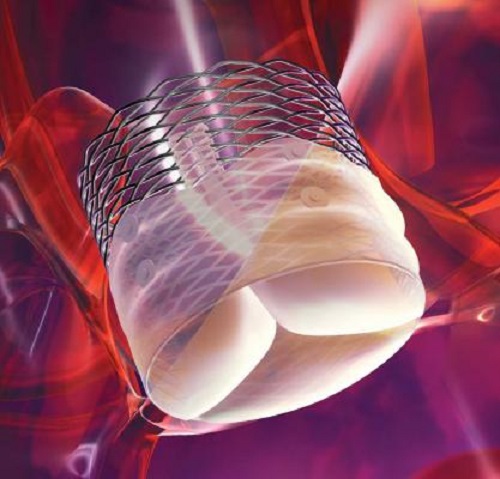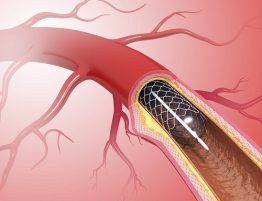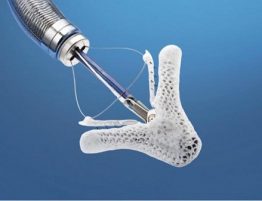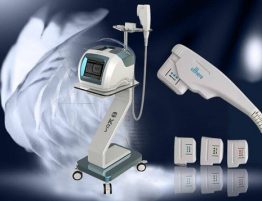
TAVI procedure in Israel – valve replacement without its removal
A Keyhole surgery or minimally invasive surgery is widely used in specialized cardiovascular Israeli centers. One of the most popular and effective method is called – TAVI – stands for Transcatheter Aortic Valve Implantation and is a minimally invasive procedure that helps to repair a damaged aortic valve. In process of operation a new valve is inserted into an old one.
Valve-in-valve – how it works?
The procedure is somehow similar to the valve stent placement. During TAVI procedure, the entirely disassembled interchangeable valve is delivered to the placement location via catheter. As soon as the new valve is extended and correctly positioned, it enlarges the leaflets of the old valve and since then it is responsible for blood flow regulation function.
TAVI – is a relatively new procedure and it has been approved by FDA for patients with symptomatic aortic stenosis, who have a medium of high risk of standard revolving operation, as the difference between these two procedures are sufficient.
How is TAVI performed?
Standard SP valve replacement – is an open heart surgery that requires breast opening. TAVR or TAVI procedure is performed via catheter (hollow tube) that is inserted into an artery either in patient’s groin or under collarbone. After it is passed to heart the catheter is positioned within the opening of the aortic valve.
As any other surgery, the TAVR procedure is also characterized with some particular risks, however it is an alternative option for those patients who are strictly forbidden to undergo any open surgeries. Few years ago this type of patients had no chances for recovery. Today it is an effective solution. The TAVI’s main advantages are its low-invasive fast performance and short recovery period that takes from 3 to 5 days at the most. The procedure can be compared with balloon angioplasty in the context of duration of hospitalization and rehabilitation.
TAVR procedure can be performed in two different approaches. To figure this out, the specialist thoroughly considers all the data, to apply the most effective and safe access to the valve:
- Trans femoral approach. The catheter is inserted via femoral artery. There is no need of any breast sections in this case.
- Transapical approach. A minimum-invasive surgery, that requires a small chest incision. The catheter is inserted via great chest artery or left ventricle tip.
What is so unique about Israeli method of valve replacement?
- much more safe than any other method;
- no stiches;
- no cardioplegic arrest;
- the valve starts to function at once;
- short recovery period; (the patient is dismissed on the 3-4 day after the surgery)
The advantages of TAVI procedure in Israel
- Highly-qualified and experienced cardio-surgeons and specialists
- The latest medical inventions
- Hi-tech super precise modern equipment
TAVI procedure is a perfect option if you are an adult person. Nowadays it is the only safe and successful way to recovery as to any heart valve surgery is an extremely high risk for this group of people.






